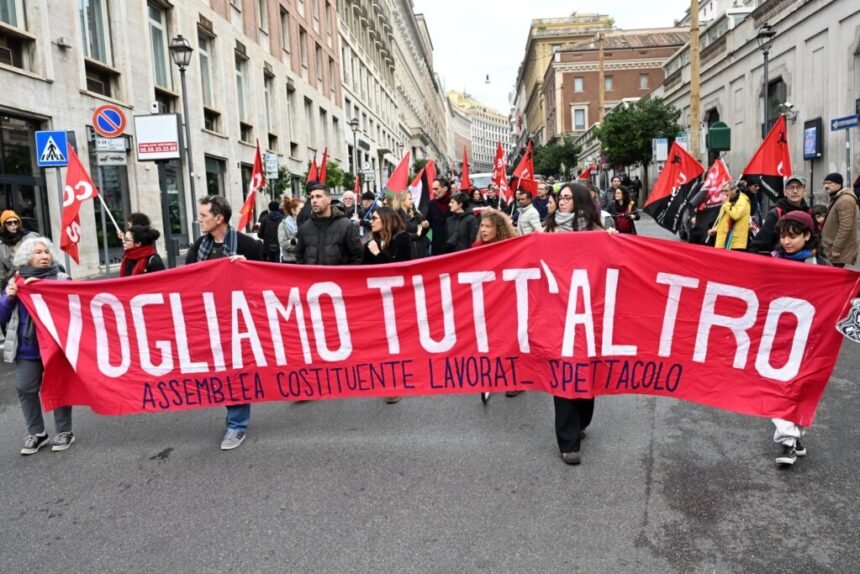Thousands of workers have left their jobs across Italy today in protest against rising living costs, low wages, and government policies they believe have weakened public services.
The country’s most powerful trade unions organized an eight-hour strike and marches, involving teachers, healthcare workers, garbage collectors, and other employees. Protesters are voicing opposition to the proposed government budget and demanding a fairer distribution of profits between employers and workers.
“These protests are not only aimed at the government, but also at business owners, managers, and corporations, who have made record profits in recent years,” said Maurizio Landini, head of the General Confederation of Italian Workers (CGIL), speaking to reporters in Bologna.
Strike Paralyzes Key Sectors Across the Country
The general strike has led to the cancellation of dozens of flights, and public services such as schools, hospitals, and city transport have been severely disrupted.
While the unions called for an eight-hour strike, Transport Minister Matteo Salvini imposed a four-hour limitation on the strike in the transport sector. The healthcare system, which is already facing chronic staffing shortages, has been forced to hire foreign nurses, with the southern regions of Italy lagging far behind the wealthier north in terms of healthcare services.
Rising Costs and Inflation Sparking Discontent
Demonstrators are also protesting the constant rise in the prices of essential goods. Despite some signs that inflation may be stabilizing, data shows that the cost of groceries for a family of four has increased by 238 euros annually in 2024 compared to the previous year, forcing many families to cut back on their spending.
Italy’s average gross annual salary of 35,000 euros is below the European average and significantly lower than that of other G7 countries, such as France and Germany.







